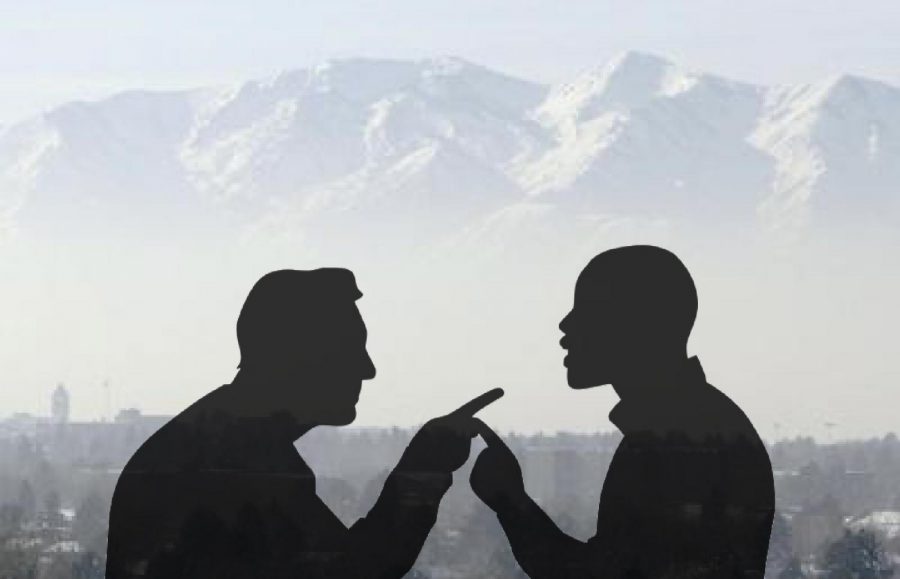Unity is Needed to Save the Planet
December 20, 2020
When asked to imagine an environmentalist, many people think of a vegan tree-hugger who bikes to work. While many environmentalists do follow a certain lifestyle, the belief that our planet deserves to be honored and preserved is one that can, and should, be shared across all demographics. The popular idea that liberal people care about the environment more than those with conservative beliefs is extremely harmful to the greater human cause of reducing climate change.
Though prevalent, this distinction between democrats and republicans has not been around for very long. When climate change began to gain traction as a political issue in the 1970s, it was a topic which people from all parties could stand behind.
For example, according to the Yale Program on Climate Change Communication, the Clean Air Act (a federal baseline law regulating airborne emissions from mobile and stationary sources) was passed in 1970 with a Senate vote 73-0. This was under the presidency of Richard Nixon, a member of the republican party.
“Restoring nature to its natural state is a cause beyond party and beyond factions,” said Nixon in an effort to unite the country behind this issue.
Throughout the 1970s, the environmental movement was strengthened and expanded, and it wasn’t until Ronald Reagan took office in 1981 that things began to get divisive. From that point on, environmental regulations were often seen as unnecessary restrictions that would hinder the economy. In an aggressive effort to bolster financial growth, the republican party came to rebel against any environmental protections that were deemed economically inconvenient.
Over time, this economically inconvenient data led to fear and avoidance, which in turn led to the most recent republican president of the United States denying the existence of climate change. Much of an entire political party is confused about what to think; whether to claim that global warming is propaganda, or to believe the scientists who have been demonized in their reports of impending environmental doom.
In 2016, 42% of Americans considered themselves “environmentalists” according to a survey conducted by Gallup News. This is down from 78% in 1991, a 46% decrease. That in and of itself is concerning.
The gap in parties is also startling. In 1991, both republicans and democrats had equal values of 78%. The 2016 data shows that only 27% of republicans called themselves environmentalists, compared to 56% of democrats.
This is not to say that all republicans are unaware and unconcerned with climate change. While the self-identification of “environmentalist” for the Gallup study may seem a little extreme for some people, a Conservation Coalition national survey recorded that 76% of republican voters said that they support the government taking steps to reduce carbon emissions. 94% of democrats had that response as well.
That statistic appears to be slightly more encouraging, but the willingness of people to take concrete action against climate change leaves much to be desired. Political candidates with little to no regard for the environment continue to be elected to office, and not nearly enough current government officials are being held accountable.
Even though many republicans and democrats support taking climate action, it is often not a priority, and consequently people elected to positions of power do nothing about the issue. With some estimates giving humans less than a decade to make major changes in order to prevent irreversible climate damage, it needs to be a priority.
Inter-party squabbling about specific environmental rules and regulations is something the suffering earth simply cannot handle at this point in history. It is time that everyone unites behind the common goal of facilitating the preservation of our planet.
The United States is not the only nation disagreeing about how to combat climate change. A Pew Research study shows that four other major economies, Australia, Germany, Canada and the United Kingdom, have large party divides on whether climate change is a major concern.
However disheartening this can be, there is hope for the future. A large percentage of people believe that our planet is worth protecting, and the struggle for the next few years is to get behind a common cause of action and translate this concern into legislation.
Protecting the earth is a cause everyone should be able to get behind. It directly affects the quality of life people experience now, and that which they will experience years into the future. Americans and people around the world need to stop just thinking to themselves that climate action is necessary, and actually start making those changes.
It’s understandably difficult to unite people in today’s intensely polarized political environment, but it’s something that needs to happen. This action can come from both the side of the voters, and the side of the public officials trying to garner support. In fact, action needs to come from all sides in order to have any chance at defeating the problem that is the climate crisis.
In the words of teenage climate activist Greta Thunberg, if people can educate themselves and unite for a common cause, “there is hope. We can change and people are ready for change.”




























